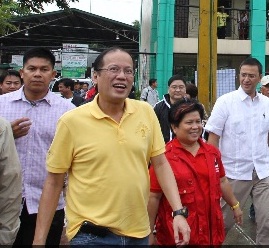Penman for June 27, 2011
EVERY NOW and then, I get asked about the purpose and the value of writing workshops. Quite a few people—notable writers among them—have dismissed writing workshops too easily, pointing out (correctly) that writers like Jose Rizal, Leo Tolstoy, and William Shakespeare never went to one, and (incorrectly) that writing can’t be taught, and that workshops only end up creating technically perfect but unexciting and insubstantial works catering to the tastes of an academic cabal.
Facing another such question in an online forum a couple of weeks ago, I felt obliged to respond that what you get out a workshop depends to a great extent on what you bring into it—your work and your expectations.
People often go to workshops aware that their work is encountering a problem, and are therefore open or should be open to suggestions. Some others attend workshops in search of an audience to appreciate what they think is already polished, superlatively good work—and when they catch flak, they react and resist, and the workshop turns into a fruitless and ugly experience for everyone. Some people expect writing workshops to be therapy sessions or support groups; writing can be tremendously cathartic, and sharing one’s deepest hurts with others can be a good way of exorcising them.
Experienced writers don’t need workshops, because they’ve internalized its principles, and are in constant dialogue with themselves. Some others—perhaps less confident and craving the company and attention more than the instruction—might go workshop-hopping, gaining a bevy of e-group and Facebook friends.
Workshops can serve these needs, but that's not their primary purpose. Workshops are meant to help writers—especially those just getting started—with their attitude and technique. A good writing attitude is one that knows how to accept and dispense criticism, and also to determine what the core of one’s own writing is, and to discern which comments help that core, and which don’t. While I suspect that insight and linguistic brilliance come with the person, I believe that writing technique can certainly be taught, and those who think otherwise need only ask why piano teachers and voice coaches exist. At a certain level, a workshop will also raise more philosophical issues—whom do we write for, and why? How does our writing relate to the life of the nation?
Much depends on the workshop director or facilitator—usually, a person who is not only a credible writer himself or herself, but someone who knows how to manage people and expectations. Good facilitators keep their own egos in the background and lead discussions gently but firmly, steering them toward important learning points (say, point of view, dialogue, characterization, description, etc.). They should tread a fine line between candor and crudeness, and always seek to maintain civility in a potentially explosive situation, mindful that—no matter how badly done—a creative work is an extension of the writer’s person. The useful question to ask isn't really "Do you like it? Do you hate it?" but "Why?"
A good facilitator will not seek to impose his or her own critical standards on others, but will offer up many ways of looking at a work; he or she will also not seek to create clones or carbon copies or his or her own work and style among the workshoppers.
In almost every workshop, some people will talk more often and more loudly than others—and quite often, the best talkers aren't necessarily the best writers. Speaking of talking, in my workshops, the writer whose work is being taken up doesn't speak until everyone else has spoken, so the discussion doesn't become unnecessarily defensive early on, and people don't clam up when they sense resistance from the author.
For me, one of a workshop's best values is that it gives the author a sense of how his or her work is going over with ordinary readers, a chance he or she will never get in the open market—and you spoil that chance by intruding too soon into your reader's responses. Let them speak freely—and then make your clarifications afterwards (in a good work and to a sharp reader, the clarifications will be embodied in the text.)
While it's important to listen keenly to what people are saying and to their suggestions for improving the work, the author should feel under no obligation to accept them all. They will often be varied, if not at cross-purposes. So a workshop teaches the author discernment, and encourages him or her to develop his or her own critical faculties. Eventually, the workshop will end—euphoria for some, torture for others, a bit of both for most—and the participants will have to go home to face the blinking cursor all by themselves, keeping whatever they learned in mind.
FROM A former student of mine and a UP workshop alumnus, Carljoe Javier, comes the good news that his book And the Geek Shall Inherit the Earth, originally published by Milflores, has come out in an e-book version on Amazon. You can download it for $2.99 at (http://www.amazon.com/Geek-Shall-Inherit-Earth-ebook/dp/B0053ZJ2P6). This is a boon for all Filipino writers, as it opens the door wide to global publishing and distribution, without all the complications that come with finding an agent who then finds a publisher, and so on. I asked Carljoe how he did it, and this was what he told me:
“I submitted my book to local digital publisher Flipside (www.flipsidecontent.com) and they took care of digitizing the text for iPad and Kindle versions. They are registered with both iBookstore and Amazon (Flipside is a Filipino company that works as a BPO digitizing books for the likes of Barnes & Noble, and they've branched out to offer new local content).
“We could always go directly to Amazon and Apple and publish through them, but the registration, taxes, and other hassles were too big for me to think about, so I outsourced all the worry to the digital publisher.
“As someone trying to get read by a larger audience, I've published with two digital publishers already. Vee Press publishing Kobayashi Maru of Love, and now Flipside is publishing And the Geek Shall Inherit the Earth.
“I believe in Chris Anderson's Long Tail, which says that if it's on the Net, someone will download it. I don't hope to be a big hit like Rowling or Meyer, but I do hope to get enough of a readership, a niche readership that's larger than the one I have in print here in the Philippines.”
All the best of luck to you, Carljoe—the rest of us won't be far behind. By the way, another Javier book—Geek Tragedies, for which I wrote a blurb sometime back—will be launched by the UP Press on July 1. This guy’s on a roll!
AND HERE'S another UP Press plug—an appeal, actually. My UP colleague and good friend Dr. Gemino “Jimmy” Abad would have been distinguished enough if poetry were all he did, but Jimmy is also fast shaping up to be the most important Filipino literary anthologist of our time. After completing a monumental series of anthologies covering Philippine poetry in English over the past century, and picking up where the late Prof. Leopoldo Yabes left off by selecting the best Philippine stories in English of the past six decades, Jimmy is about to complete the final volume of his story series. This book, Hoard of Thunder, will cover the best stories of roughly the past two decades.
Jimmy needs permission from several authors he can’t reach, for him to publish their stories: J. A. Romualdez, "The Apartment," 1994; Carmelo Juinio, "The Fairy Prinsoid," 1996; Merlinda Bobis, "White Turtle," 1998; Iris Sheila B. Crisostomo, "Passage," 2000; Rhea B. Politada, "The Epic Life," 2008.
If you know these authors or have their email, please let them know about this call. Jimmy also wants the authors to know—with some sadness, I’m sure—that “The UP Press, as it is subsidized, can afford only a 20% discount for authors included in the anthology.” Thanks, all!


